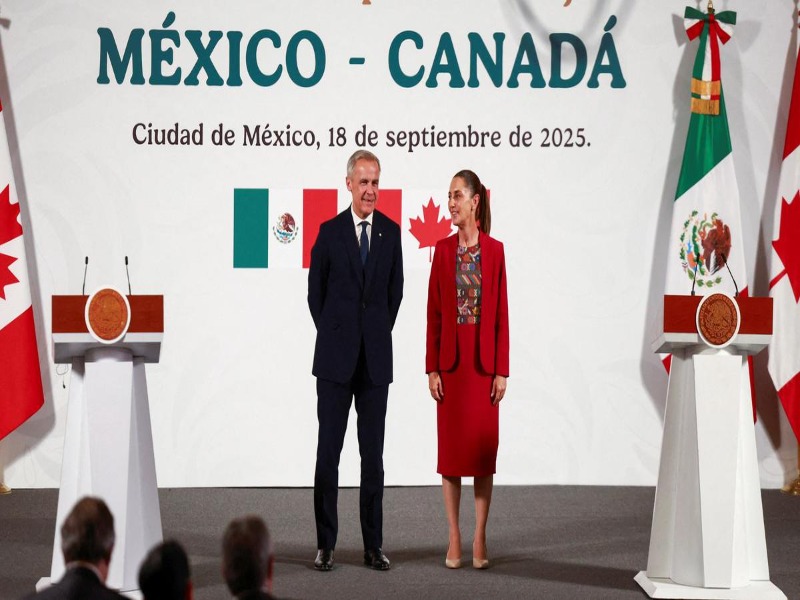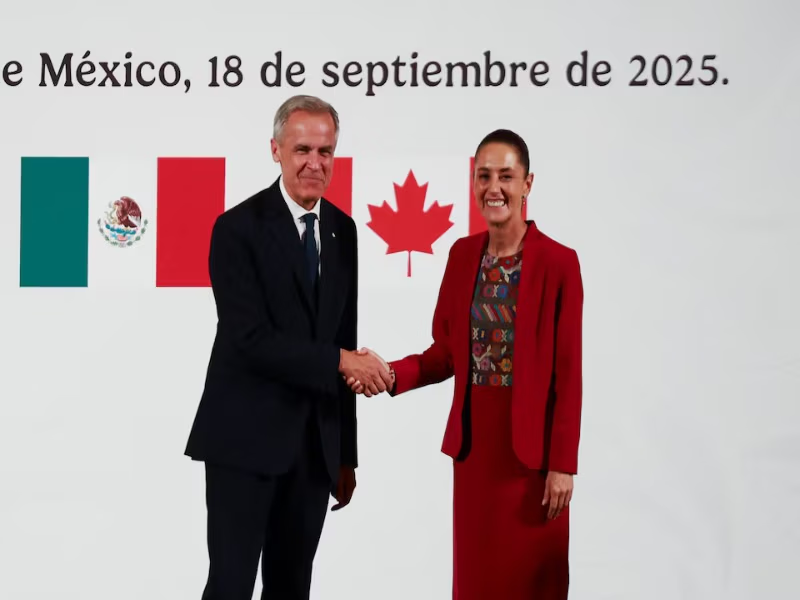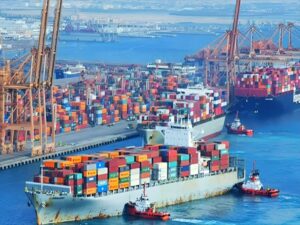Prime Minister of Canada Mark Carney on Thursday spoke to the problem of Mexican drug cartels in Canada. However, he also noted that “there are Canadian gangs that operate in Mexico,” he further added, calling for more cooperation to fight against the gangs.
During a speech, PM Carney and Mexican President Claudia Sheinbaum Pardo, in Mexico City, where the two leaders signed a new comprehensive strategic partnership that is destined to enhance trade and security relations, including addressing transnational organized crime.
He states, “The unfortunate fact is that yes, there are cartels or gangs from one country in another country, but also vice versa, I’m going to acknowledge that there are Canadian gangs that operate in Mexico. We cooperate with the Mexican authorities. We share information. We’re deepening that cooperation.”
In matters of security, PM Carney said, “Surveillance, heightened police cooperation is appropriate to ensure that these criminals are brought to justice, and not wavering in the efforts to bring them to justice, whether the activities are in Canada, Mexico, or the United States.”
Sheinbaum emphasized that the agreement outlines collaboration on border security, while also including cooperation on cybersecurity and defense.
Canada and Mexico both face U.S. tariffs on goods outside free trade agreements, measures defended by U.S. President Donald Trump as targeting fentanyl trafficking.
On Wednesday, President Trump signed a memorandum that includes Canada’s effort to control fentanyl. President Trump adds, “more action is needed to stop fentanyl and other drugs from crossing our border and to arrest drug criminals exploiting Canadian territory.”
Meanwhile, Canada was not among the list of countries that the U.S. has classified as a “major drug transit or major illicit drug producing” nation. Mexico, China, and other Latin American countries are listed by the U.S.
In recent years, transnational drug and organized crime have been on the increase in both Mexico and Canada.
Former Canadian Olympic snowboarder Ryan Wedding, who was alleged to have operated a transnational drug trafficking network in Mexico and Canada, is on the FBI list of 10 most wanted fugitives.
In May, the U.S. Drug Enforcement Agency reported that it was concerned about fentanyl “super laboratories” in Canada, which are “a growing concern for the United States.”
According to the Annual Drug Threat Assessment, the quantity of fentanyl flowing into the U.S. has significantly decreased, compared to an amount flowing into the country across the border with Mexico, although Canadian opioid manufacturing has the capacity to expand and provide the amount needed to fill the “supply void” south of the border.
In a recent report to the Criminal Intelligence Service Canada, organized crime groups that produce fentanyl, which is mainly located in British Columbia and Ontario, are reported to be in contact with drug cartels in Latin America.

Even though the report concluded that there have been 42 percent more people involved in fentanyl since 2019, it also reported that the groups are also connected to American crime syndicates as a means of trafficking firearms in Canada.
In the first half of the year, Canada became the first country after the U.S. to designate various Mexican cartels as foreign terrorist organizations.
In 2016, Jody Thomas, a former National Security Advisor to former Prime Minister Justin Trudeau, reported to Global News that the activity of organized crime cartels in Canada is “very prevalent now” than it was at least ten years ago, and hoped that the terrorist designation would aid in the fight.
She states, “It’s becoming a problem and we have an opportunity here to get a grip on it before it becomes a national crisis.”
In recent months, Canadian law enforcement has gone after fentanyl manufacturers in the nation, including three drug laboratories, which were seized in the Lower Mainland of British Columbia, earlier this spring.
In British Columbia, another drug “superlab” that was busted in October 2024 was described by the authorities as a “supermarket” for organized crime, and it made and trafficked fentanyl and methamphetamine into Canada and abroad.
The Liberal government has introduced legislation that seeks to grant law enforcement agencies expansive new powers to crack down on fentanyl trafficking, such as increased surveillance and the power to search Canada Post mail.
According to the latest data released by the U.S. Customs and Border Protection, the number of fentanyl seizures on the northern border has been reduced to almost record lows, with only 0.2 kilograms being seized in July, following two months of unprecedented highs of over 26 kilograms in April and May.
Nevertheless, total drug interceptions surged in July, with most of the growth in the number of encounters involving what CBP characterizes as “other drugs,” which includes oxycodone and other prescription and illicit opioids, and precursor chemicals.
The statistics also indicate that the number of seizures at the southern border of the U.S. is lower than it was last year.






